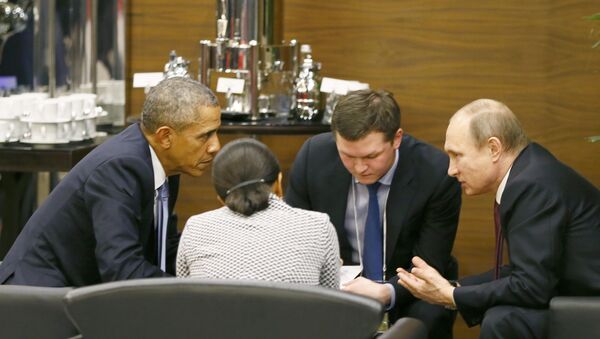"We are already seeing the beginnings of cooperation and in some ways it is very encouraging to see that occasionally something good can come out of something evil. The question, I think, is not so much whether cooperation will start but how long it could continue," he noted.
Sedgwick, an associate professor and coordinator of the Unit for Arab and Islamic Studies at the Aarhus University in Denmark, pointed to some "difficulties in details" that observers should pay attention to.
The Syrian situation is very complicated due to the sheer number of parties involved. Their perceptions and priorities, according to the expert, prevent major stakeholders from coming up with a comprehensive joint strategy.
"Everybody hates ISIL unless they hate one of the other groups more," Sedgwick said, referring to President Bashar al-Assad, Syrian opposition groups and the Kurds.
The US has long seen removing Assad from power as a precondition for launching a peace process in the war-torn country, with European capitals taking Washington's lead. Western attitude towards Assad is gradually changing but his role in Syria's future is still a point of contention.
The Kurds have been instrumental in fighting ISIL on the ground in both Iraq and Syria but Turkey would prefer the West to stop supporting them. Ankara has been conducting airstrikes against militants from the Kurdistan Workers' Party (PKK) and is largely fearful of Kurdish separatism.
"There are real difficulties in trying to realign the West with Russia on these issues because of those other parties involved in this as well," the expert added.
Sedgwick believes that military means are quite efficient in tackling ISIL in short-term.
"In the short term, the military can certainly fight an organization which is itself trying to hold territory. This is one of the things that made ISIL very different from the average terrorist organization, because an average terrorist organization is not trying to hold territory. It just disappears and then becomes increasingly difficult to strike back at," the analyst explained.




